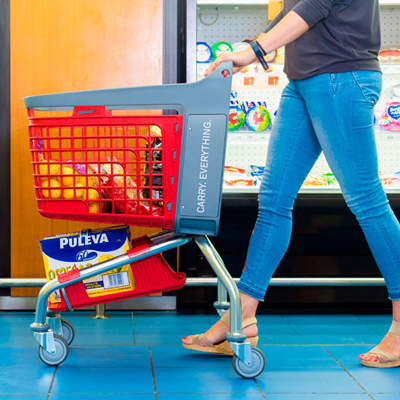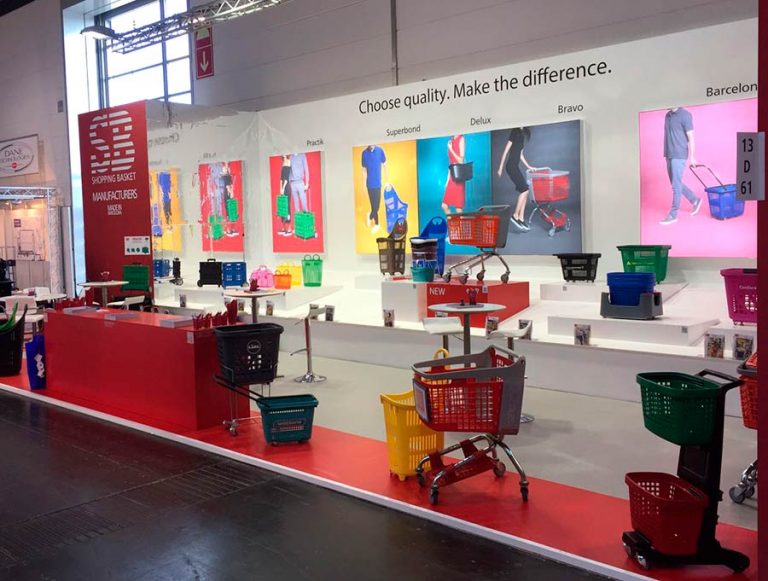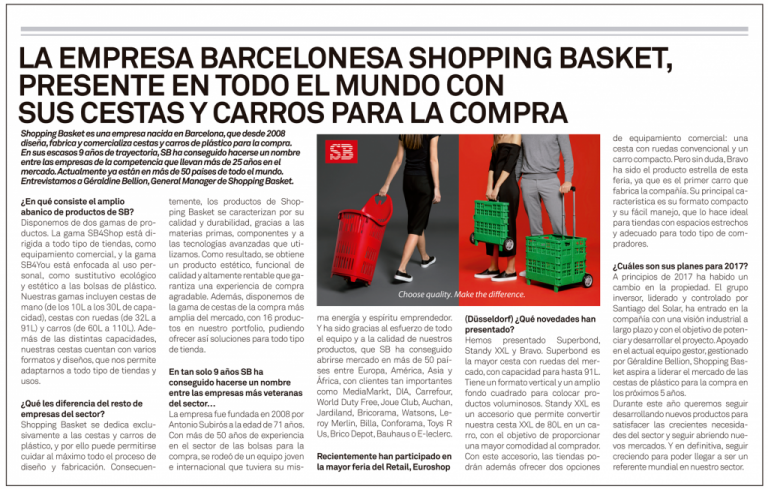Marketing in 2025 will be driven by technological innovation, sustainability, and emotional connections with customers. Brands that hop on these trends won’t only receive attention but will build stronger and more enduring relationships with their audiences.
In this Shopping Basket article, we cover the 7 key marketing trends for 2025 that are reshaping the retail sector.
Artificial Intelligence as the Engine of Marketing
Artificial Intelligence (AI) will emerge as a key tool for automating and personalizing marketing campaigns, optimizing resources, and enhancing customer experiences.
- Predictive analytics: Identifying buying habits to anticipate customers’ needs.
- Campaign automation: Creating real-time personalized interactions.
- Advanced chatbots: Providing instant and accurate responses for seamless customer service.
- Personalized recommendations: Suggesting products or services based on users’ interests and behavior.

Sustainability as a Strategic Priority
Sustainability will also be central to connecting with increasingly conscious consumers. Businesses that adopt responsible practices will not only improve their reputation but also increase customer loyalty.
- Circular economies: Manufacturing products using recyclable materials and eco-efficient practices.
- Transparent communication: Showcasing how their operations benefit the environment and society.
- Encouraging responsible consumption: Reducing waste and promoting sustainable alternatives.
- Green certifications: Earning recognitions that validate their commitment to sustainability.
Integrated Omnichannel Ecosystems
The convergence of physical and digital channels will be key to delivering a seamless and consistent shopping experience. Brands that implement effective omnichannel strategies will foster trust and accessibility in every interaction.
- Total synchronization: Merging physical stores, online platforms, and mobile apps.
- Phygital (physical-digital) experiences: Blending the best of both digital and in-person worlds.
- Data-driven optimization: Using insights to adjust strategies in real-time.
- Efficient logistics: Offering flexible options like store pickup or fast home deliveries.
Emotional Connection Through Storytelling
In a competitive marketplace, storytelling will be essential for standing out, forging genuine connections with consumers, and humanizing brands.
- Authentic stories: Transparently communicating values and purpose.
- Engaging audiences: Crafting narratives that resonate emotionally with consumers.
- Social impact: Demonstrating how the brand contributes positively to society.
- Creative formats: Using videos, podcasts, or infographics to connect with audiences on an emotional level.
Immersive Technologies for Innovative Experiences
Augmented Reality (AR) and Virtual Reality (VR) will revolutionize how consumers engage with brands, creating unique and memorable experiences.
- Virtual visualizations: Allowing customers to try out products or services before making a purchase.
- Immersive tours: Exploring stores and virtual worlds from anywhere.
- Interactive online events: Engaging audiences through customized virtual experiences.
- Gamification: Adding game-like elements to boost customer engagement.
Collaboration and User-Generated Content (UGC)
User-generated content will play a key role in building brand trust and authenticity, making businesses feel more relatable and credible.
- Reviews and testimonials: Highlighting real customer experiences to strengthen credibility.
- Micro-influencers: Partnering with content creators who have a close connection with the target audience.
- Active communities: Encouraging engagement and a sense of belonging among consumers.
- Viral challenges: Launching campaigns that inspire users to create and share original content.

Inclusion as a Growth Driver
Diversity and inclusion are already essential strategies, helping brands connect on a deeper level with their audiences and stay relevant in the global market.
- Impact on purchase behavior: 8 out of 10 consumers say they’re influenced by brands that embrace inclusivity.
- Key audiences: Gen Z, Millennials, LGBTQ+ communities, people with disabilities, and emerging markets are becoming central to many brands.
- Profitable growth: Inclusive brands tend to drive consumer preference and achieve long-term success.
- Representative campaigns: Showcasing diversity in messaging, products, and services is no longer optional—it’s essential.
Marketing Trends 2025: The Future of Marketing is Here
The marketing trends of 2025 reflect both technological and societal shifts, giving brands a chance to establish themselves as leaders in an ever-evolving and competitive landscape. The time to take action and refresh your marketing strategies is now!

 Sign up for our newsletter and be the first to receive our articles!
Sign up for our newsletter and be the first to receive our articles!



























